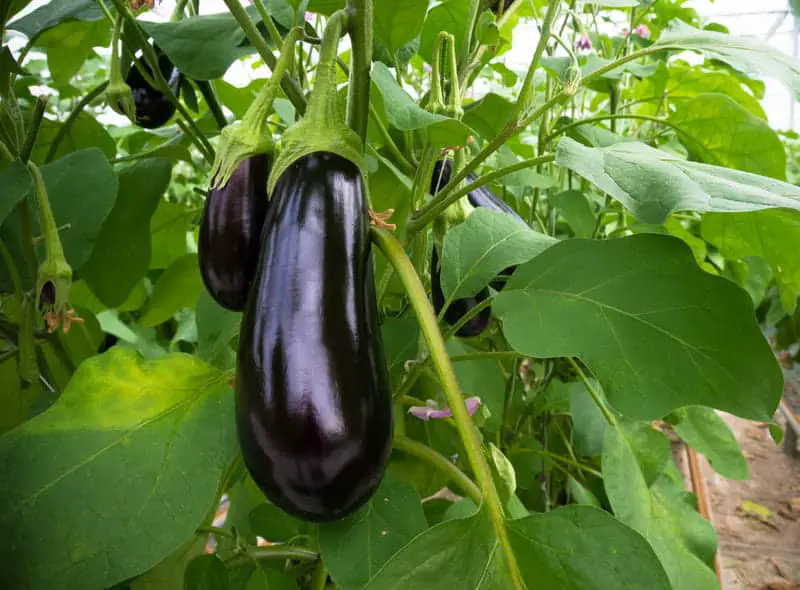Eggplant is an international favorite in so many countries.
Think of Italian eggplant parmigiana, French ratatouille, Asian stir-fries, brinjal in Indian cooking, Greek moussaka and so many Egyptian dishes.
Growing your own eggplant will provide you with tasty ingredients. So, read on for how to protect it with the best companion plants to accompany it as it grows.
Companion plants for Eggplants
Eggplants are a relatively low-maintenance crop that grows well with many other plants. Some companion plants that are known to grow well with eggplants include:
1. Peas
A fantastic companion plant to place next to eggplants, which add nitrogen to the soil as they grow and give you tasty peas as well.
2. Climbing beans
Climbing beans also fix nitrogen in the soil as they grow, which your eggplant can utilize well for bigger fruit. It is important to ensure that the eggplant is in direct sunlight though.
Plant a row of eggplants, then a row of beans giving enough space between them. That way, the beans do not cast shade on your eggplants.
3. Bush beans
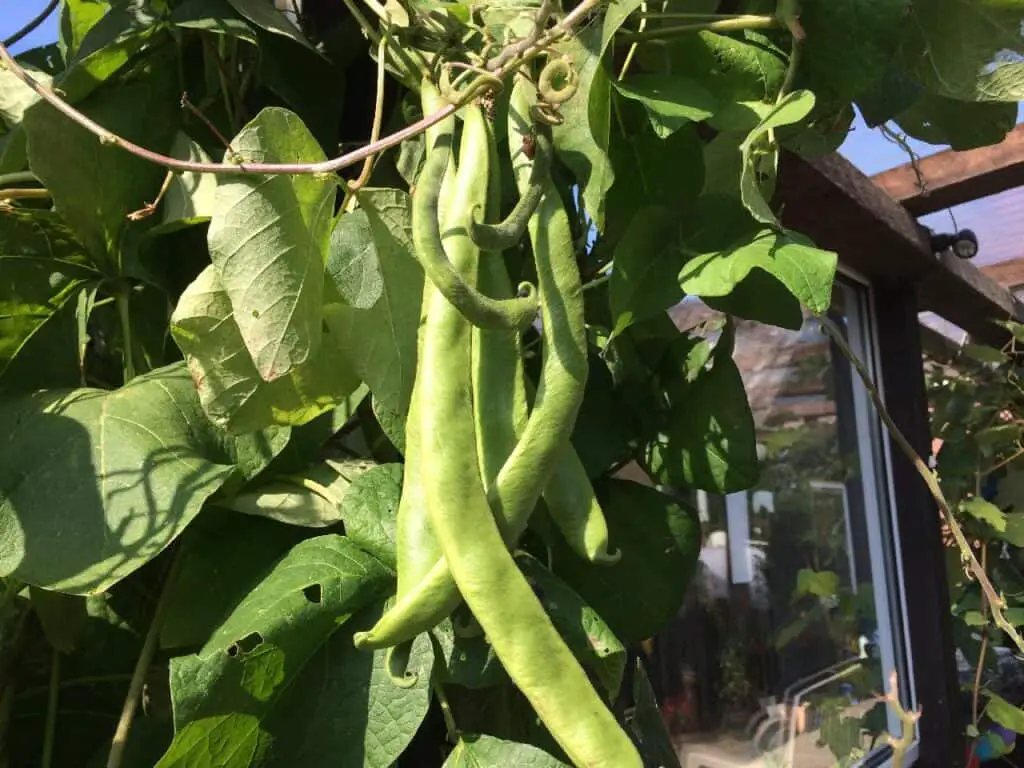
An added bonus is that these beans repel a big pest of the eggplant: the Colorado potato beetle. Keep on reading to learn about typical eggplant pests and how to keep your plants safe.
4. Herbs
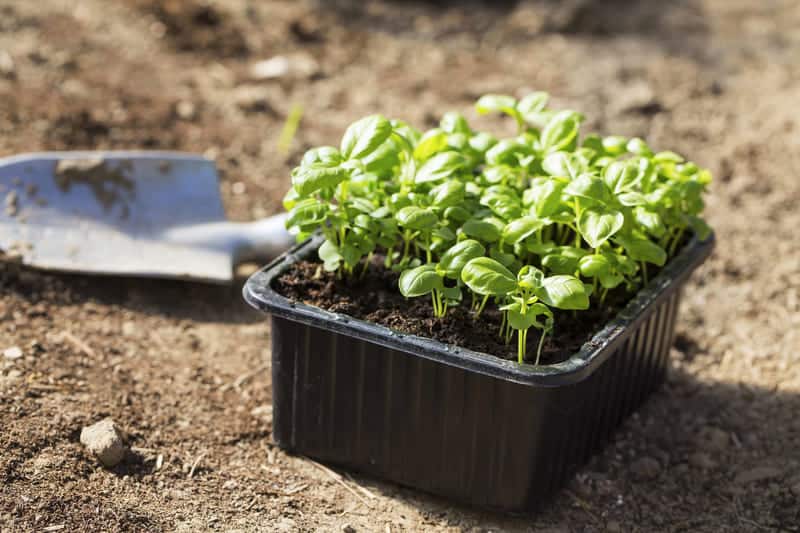
We love their aromas to flavor our cooking. However, lots of pests will be reluctant to visit your eggplant because thyme emits such a strong smell.
French tarragon is another strong-smelling herb that deters moths, so this is another good choice next to your eggplant. This herb adds exquisite flavor to dishes with eggplant too.
Mexican marigold will repel beetles from the eggplants, as well as delight your eye with its gorgeous, curled orange floral heads.
5. Sweet and hot peppers
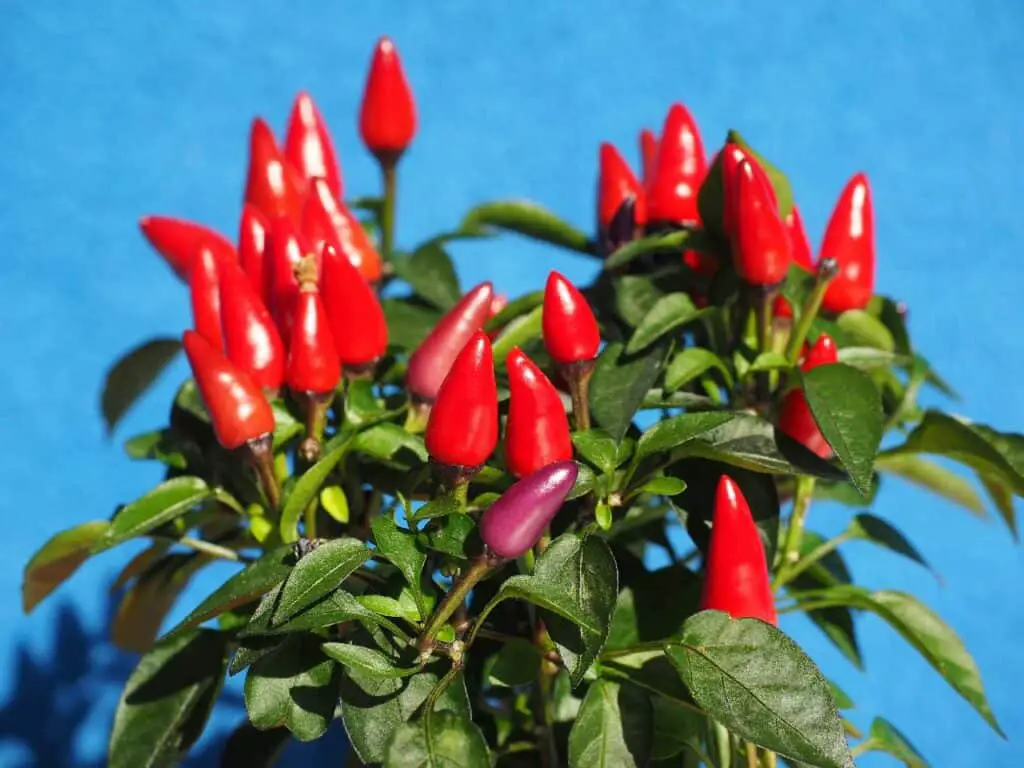
Stake them well and keep them slightly distant from the delicate eggplants.
In your kitchen, you can mix this fruit tastes well together; they promise a hot chili and eggplant late summer dish.
6. Tomatoes
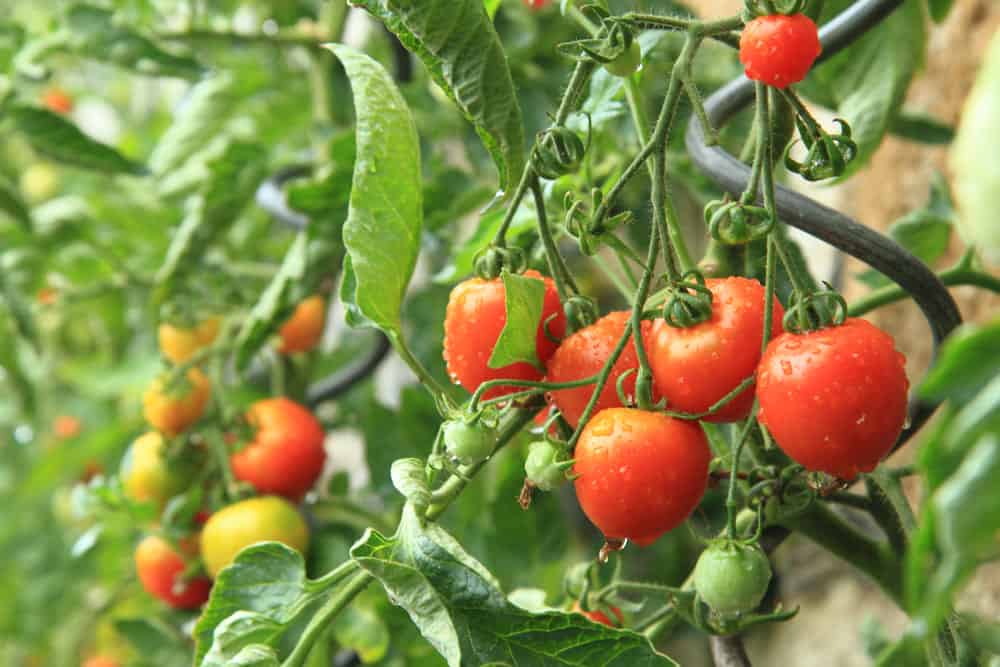
If you plant a bush tomato, it is likely to cause unwanted shade unless you place it at a distance. You do not want to put your eggplant in shade!
7. Spinach

So, both plants benefit. The spinach will continue to grow after you have harvested eggplants as it likes cooler weather.
8. Borage
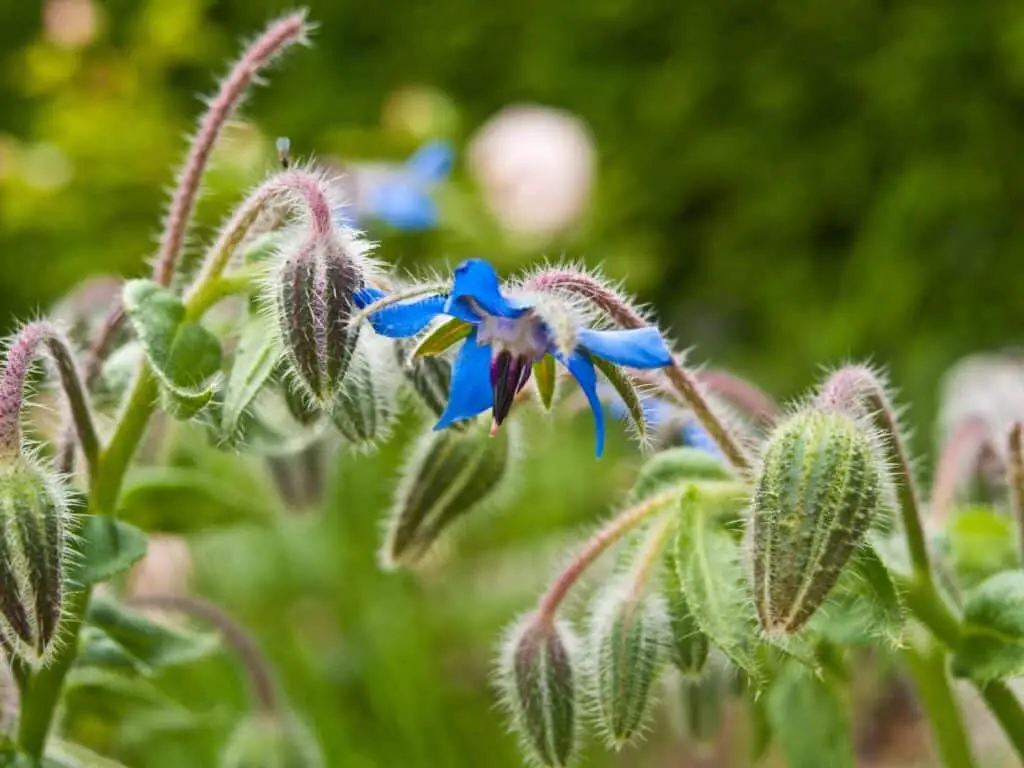
A little-known fact about Borage flowers is that they are edible and will look super cool in your cocktails. Try them at your next BBQ!
9. Lettuce and salad
Lettuce and salad grow quickly, do not send down deep roots, and do not get too many nutrients, compared to your hungry eggplant.
So, this is a great choice.
You can pick leaves and they will continue to grow the whole summer. Your eggplant harvest begins much later so you can harvest greens in early summer, then eggplants in late summer.
10. Lemon balm and mint
Both of these plants will love the shade provided by your eggplant.
However, they both are invasive in the soil too, so I would advise putting them in pots close to eggplants but not competing for the same soil.
Their scent will also attract beneficial pollinators and repel pests and they are happy in the shade some of the days. Your eggplant steals the sun and soil while these two lie happily in the shade. So, it is a win, win!
3 Worst companion plants for Eggplants
The following 3 plants do not make good companion plants for eggplants. So, keep them in mind when planting your eggplants together with other plants.
Fennel
Fennel is the worst offender next to eggplant as it releases a chemical that slows growth in other surrounding plants.
Meaning, the size of your eggplant will suffer.
Tall plants
Any tall plant that will grow and shade it. Eggplants are delicate and they enjoy being the star of the show.
Any competition means their fruit will be slow to develop or may even taste bitter. So give your eggplant the best spot and pamper it with great soil, daily watering, fertilizer, and lots of sunshine.
Potatoes
Potatoes planted with eggplant bring opportunity for the Colorado potato beetle.
It really is better not to provide the beetle the chance to fly from potato to your eggplant and vice versa. I strongly advise against planting potatoes with your eggplant.
Read on for advice on typical pests.
Does eggplant grow well with cucumber?
This combination works well. Cucumbers and eggplants enjoy similar conditions and both adore the sun and good soil. Just make sure the cucumber does not throw shade on the star of the show.
Your eggplant wants to be the main attraction!
The cucumber will also need staking and feeding. Thus, feed them both well every fortnight and you can enjoy cucumber salad with that eggplant parmigiana!
Are tomatoes and eggplant good companion plants?
Yes. The only possible issue is if the tomato shades the eggplant.
Do you know how the eggplant adores being the brightest star of the show? Treat them like that with rich soil, 6 hours of sun, daily watering, and the best possible position.
Your tomatoes will also thrive using these guidelines.
However, the eggplant is probably one of the fussiest so if there is a space that gets the most sunshine and the least shade, make sure you place the eggplant there.
Side-line the tomatoes to a spot with a little more shade. The tomatoes will not mind that too much but your eggplant is unforgiving.
Can eggplant and zucchini be planted together?
Zucchini is a good match for eggplant provided that the zucchini is managed as a secondary to the eggplant.
A fussier plant than an eggplant is hard to find so give it the best of everything.
The zucchini will spread and may get mildew on its leaves so deal with those by good staking and making sure to take off any affected leaves. Ensure your eggplant gets the best sun.
That way, both plants should thrive.
6 factors that affect eggplant fruiting
Eggplants are fussy and delicate plants. They benefit from companion planting but these plants are the star of the show which needs the best of everything.
Soil
Soil needs to be rich, preferably enriched with fertilizer every 2 weeks when your eggplant starts to flower.
It also needs to drain well so that your roots are not soggy and sitting in water.
Water
A steady supply of moisture but not soggy, so you need to water every day if possible particularly when it is sunny and hot.
Never let your plant dry out. Give plants a good soaking early in the morning and again late afternoon, if needed.
Heat
Eggplants will not germinate, flower or fruit unless they are warm. Your seedlings can be started indoors. But eggplants crave at least 20 and closer to 24 degrees Celsius (75°F) to thrive.
Their ideal temperature is above 24°C (75°F) for germination and their leaves and fruit grow well up to 80 degrees Fahrenheit. If the temperature drops below that, your eggplant will not flower and its fruit will be disappointingly small.
Sunshine
Sunshine is the next vital ingredient.
You need lots of it – at least 6 hours per day. If you pinch out the growing tips, this will encourage your eggplant to grow bushier with more stems.
Time and patience!
I have had lovely foliage on eggplants, which failed to flower for the reasons above. Then one morning, a purple bud surprised me! Therefore, water well, pinch out the tips, restrict each plant to no more than 6-8 fruit, stake them well, watch them closely and be patient.
Common flower problems
Flowers can drop off if they are not fertilized.
So make sure you have other flowers close by to attract pollinators, like borage or nasturtiums. Fruit does not develop or they drop off quite small when water or sunshine is in short supply. Keep watering!
Keep feeding plants and supplying extra nutrition right through the growing season.
Comfrey leaves planted in the ground of the eggplant can provide many of the nutrients needed as they decompose. If you haven’t got those, fertilize every 2 weeks and add more compost regularly.
Sometimes you may have to pollinate flowers manually. Use a clean paintbrush to collect pollen and paint your flowers yourself if fruiting is slow.
FAQs
How often should I water my eggplant?
Every day!
Your eggplant is your spoilt child which really needs pampering. Feed it the best fertilizer. Water it often. Ensure it never gets shaded or your eggplant may never forgive you. If you treat it well, you will be gifted with plump fruit.
Good luck and do not forget that eggplants are not for the faint-hearted gardener!
What is the best soil for Eggplant?
As rich as possible!
Added well-rotted manure is excellent. You also need to keep fertilizing and adding more nutrients while it grows. Adding slow-release capsules or comfrey leaves (or both) will produce the best results.
Which pests target eggplants?
Colorado beetle is the worst pest of eggplants and potatoes.
It can be beaten using crop rotation. Ensuring that last year’s larvae cannot hatch and breed in this year’s crop is a healthy way to ensure this beetle’s life cycle is disrupted.
Beetles love both potatoes and eggplants, so ensure you do not plant your eggplant on the ground or in pots that had potatoes the previous growing season.
Use healthy seed and mulch your seedling eggplants with straw, which often reduces the number of adults who land successfully. Covering the row with this mulch is an effective deterrent for most of these beetles.
Mealybugs, aphids, and whitefly can be dealt with simply by washing the leaves. Use a few drops of neem oil in water or dish soap and water. Mist the leaves and then wipe down leaves with a cloth soaked in this mixture, removing pests.
Do this daily if a bad infestation occurs. Keep a close eye on your eggplant and continue to wipe it down weekly.
How can I get my eggplant to flower?
Rich soil is essential. Eggplants use nitrogen as they grow, so plants which fix this (like beans and peas) are really useful.Gardeners suggest bone meal added to the soil when planting and say this encourages flowers to form.
A soil that drains well and has all the nutrients needed for healthy growth is essential.
Your eggplant needs at least 6 hours of direct sunshine per day. Refer back to the 6 factors which affect eggplant growth.
How long does it take to harvest eggplant fruit?
Eggplants take approximately 105-120 days from seed to harvest.
Pinch the tops to encourage your eggplant into bushier growth. Fertilize your eggplant every 2 weeks.
It takes at least 60 days for the eggplant to flower. Flowers should appear after 60-70 days providing the soil, sunshine and watering are adequate. It is a beautiful sight when eggplant flowers.
They continue to arrive but limit the eggplant to about 6-8 fruit to achieve good size.
Delicate purple blooms with hanging petals will need to be pollinated. If you are growing eggplants indoors and flowers appear, you may need to gently shake the plant to spread pollen.
Alternatively, you can pollinate eggplant flowers manually. Just take a paintbrush and spread the pollen within the flowers.
Spray any pests with neem oil in water and wipe leaves clean. Remove unhealthy branches to boost air circulation.
Harvest fruit when young, for the tastiest eggplant!

